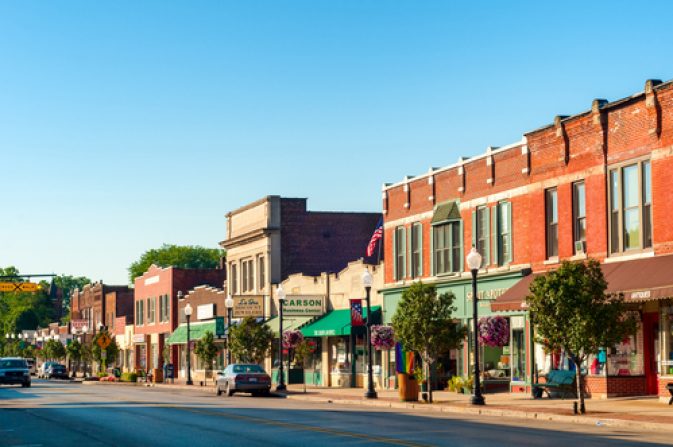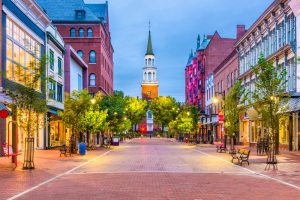Small businesses are essential for economic success

Just a few months ago, small business was booming. Unemployment was at historic lows and the economy was humming. Andersonville, a historic neighborhood in Chicago, reported that in early March their storefronts were 94 percent full. Like other towns, this dynamic neighborhood thrives because of small businesses. It is representative of the larger business community in the United States and the success many were feeling at the start of the year.
But then the new coronavirus struck. Businesses were forced to shut down via government edict and tens of millions of Americans were laid off in a matter of weeks. Small businesses were particularly susceptible because of their thin budget margins.
Thankfully, the government worked quickly to extend a lifeline to assist small businesses through the economic uncertainty.
PROTECTION AND RELIEF
The Paycheck Protection Program (PPP) was the centerpiece of relief. As part of the CARES Act and additional funding later on, hundreds of billions of dollars were distributed to small business owners in the form of forgivable loans. The relief helped mom-and-pop shops stay afloat, while also keeping their employees on the payroll. With unemployment spiking, these loans – even with the program’s complications in the early stages – kept Main Street alive.
I have spoken to many small business owners who are grateful to the current administration and Congress for launching the program. Many of our members shared stories about how the funding enabled them to keep their doors open.
Take Dr. Chris Stansbury, a partner at West Virginia Eye Consultants. He said even as patient traffic and income slowed across their seven offices, the PPP funding allowed him and his partners to continue to pay rent and utilities while also keeping staff employed. Chris later shared his story with President Trump at the White House.
Another member, Kalena Bruce, co-owns a small business called Integrity Squared CPAs with her sister, and she also helps run her family’s farm in Missouri. Both businesses experienced financial loss after the virus hit. Thankfully, with the PPP funding, she did not have to lay off employees who had been working for her family for more than 20 years. Furthermore, like all businesses, the bills didn’t stop coming. This relief from the government has provided a short-term solution to keep her family’s businesses running.
The list of beneficiaries goes on and on. Millions of small businesses received a lifeline through the PPP. But Main Street needs our continued support. We’re not out of the woods yet.
ONGOING SUPPORT IS CRUCIAL
As local governments allow businesses to reopen, we will begin to understand – and come to terms with – our new normal. Consumers may be hesitant about frequenting crowded businesses and social distancing behavior will likely extend beyond the pandemic. Additionally, those who had planned to travel in the summer might be postponing their trips. With lockdowns in place since early March, it is hard to estimate how summer businesses will fare this year.
In the past few months, air travel has changed drastically. According to Cirium, a travel industry firm, 60 percent of worldwide commercial airline fleets were grounded. As restrictions are lifted, people might still feel uneasy about boarding a plane. After the events of 9/11, it took about six years for the airline industry to fully regain its balance.
While many people are eager to visit their favorite destinations, government restrictions might keep them from doing so. Moreover, those who look to hotels and resorts for summer jobs might struggle to find employment this summer. Past Bureau of Labor Statistics data has shown that in July, hotels typically hire more than 125,000 more people than the prior December.
THE NEW SUMMERTIME
This summer looks different from those of the past. Specifically, it has been a grave adjustment for entrepreneurs who rely on the warm summer months and increased tourism to run their business. Family-owned businesses, like Keansburg Amusement Park in New Jersey, will require time before they get back to normal business operations.
Additionally, many students depend on summer jobs or internships to earn some extra cash. Because of COVID-19, 83 percent of businesses reported they had to change their summer internship programs; more than 22 percent had to revoke internships all together. Summer jobs provide a necessary steppingstone for younger Americans to a future career. While some will be able to complete their work virtually, others will miss out on improving their skills and earning an income.
The pandemic taught us very quickly that the future is unpredictable. While we are still uncertain about what the months ahead have in store, the fact remains: When small businesses thrive, America thrives. Policymakers and individuals must do everything they can to ensure they weather the economic storm. Every American depends on them.
Alfredo Ortiz is the President and CEO of the Job Creators Network.





